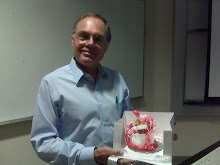Get Real!
In the olden days, it was pretty clear what was news and what was "news" ... in other words, the fake stuff was pretty obvious. But now it's tough to figure out what is factual, what is fake, what is an ad and what is written by actual journalists. This bewildering world of information, pseudo-information and downright lies is most confusing for young people who often have little exposure to actual high-quality journalism. NPR reports on a Stanford professor's study.
Questions...
•How do you determine whether news is accurate or not?
•Should computers at schools and libraries have browsers that read only stories from reputable sources? Why or why not?
•Should spreading fake news be illegal? Why or why not?
•Is fake news a threat to democratic societies? If so, how?
•How should we teach Glendale College students how to evaluate news and academic sources? Suggest some research questions for a Winter 2017 research paper on the topic of fake news.
Labels: advertising, audience segmentation, disintermediation, education, intersession, mediaeffects, newsgathering


